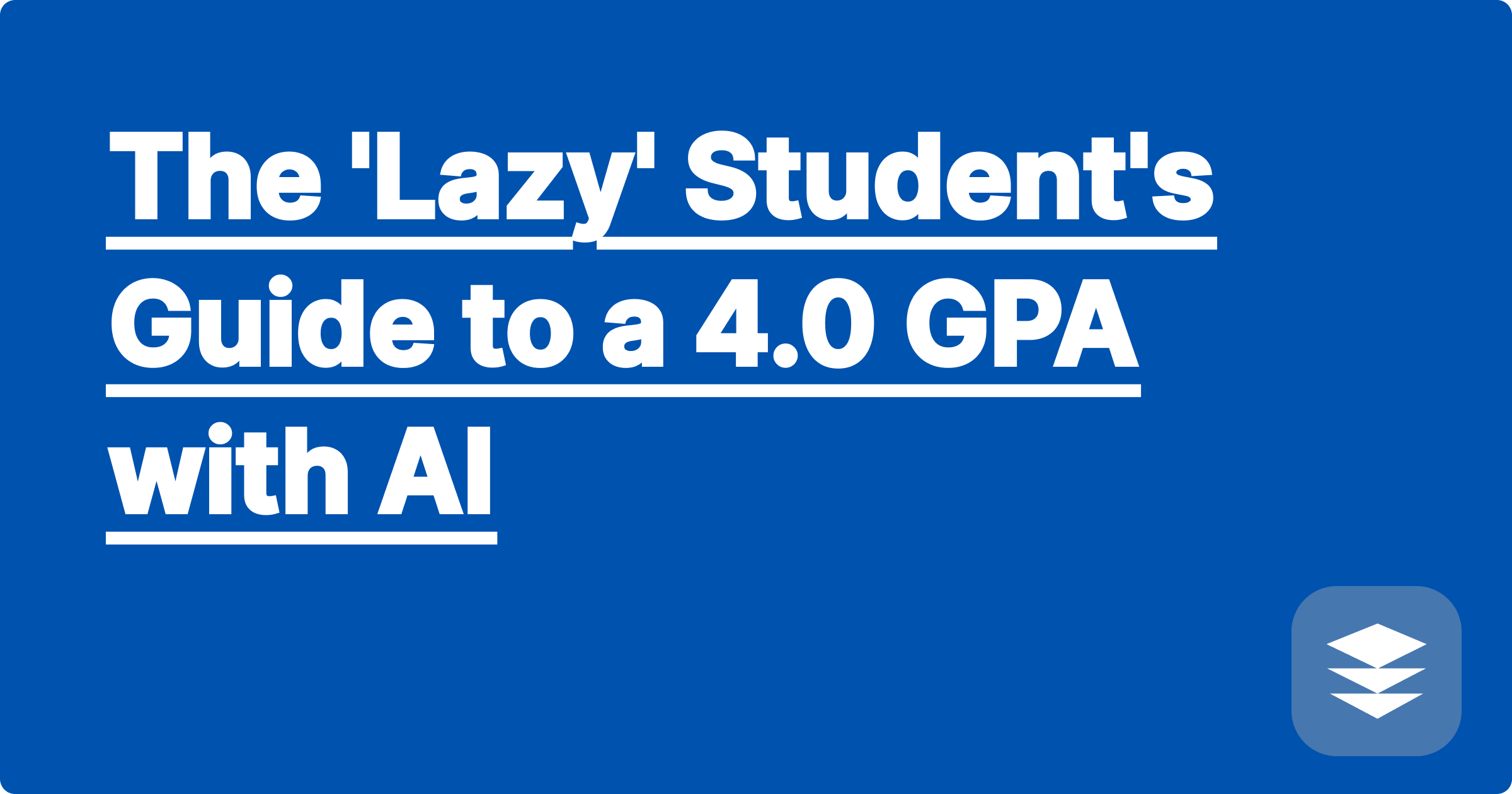
Let's be honest. You've seen students who spend 12 hours a day in the library, meticulously re-writing every note, and still end up with a B-. You've also seen students who seem to study half as much but consistently pull A's. Are they geniuses? Not necessarily. They're just efficient.
The term "lazy student" is often a misnomer. It doesn't mean you don't want to succeed. It means you have a deep, instinctual aversion to wasted effort. You don't want to spend five hours on a task that should take one.
This guide is for you. This is the ultimate breakdown of how to study less and get good grades by applying the 80/20 principle to your academic life, powered by AI.
The Pareto Principle states that for many events, roughly 80% of the effects come from 20% of the causes. In studying, this means:
The "hard-working" student tries to tackle all 100% of the work with equal effort. The "lazy" (i.e., smart) student ruthlessly identifies and automates the 80% of busywork to focus all their energy on the critical 20%.
Here are the most efficient study hacks that use AI tools like the GPAI Suite to eliminate wasted effort.
[Image: An animation showing a huge pile of books and papers being fed into a machine and coming out as a single, clean sheet of paper. Alt-text: A visual representation of efficient study hacks using AI to condense information.]
"My roommate called me lazy because I never seemed to be 'studying'. The truth is, I used GPAI to automate all the boring parts. I studied for maybe 5 hours for the final and got an A. He studied for 20 hours and got a B. Who's the smart one?"
Q1: Is this approach actually about being lazy?
A: It's about being strategically lazy. It's about refusing to waste your cognitive energy on tasks that a machine can do better and faster. This frees up your time and mental clarity for the things that truly require human intelligence: understanding complex concepts and solving novel problems.
Q2: Will I really learn the material if I'm "studying less"?
A: Yes, because you are studying smarter. The hours you save from tedious summarization are re-invested into higher-quality activities like working through practice problems and actively engaging with the core concepts. You're replacing low-quality study time with high-quality learning time.
Q3: What's the most important efficient study hack you can give?
A: The most important hack is to change your mindset. Stop glorifying "the grind." Start asking, "What is the 20% of work that will get me 80% of the results, and how can I automate the rest?" Tools like GPAI are the answer to that question.
At the end of the day, your transcript doesn't show how many all-nighters you pulled. It only shows the grade. By embracing a smarter, more efficient approach to studying, you can achieve top results while reclaiming your time and sanity.
Ready to learn how to get good grades with less effort?
[Try the GPAI Suite today. Automate your busywork and focus on what really matters. Sign up for 100 free credits and discover the power of studying smarter.]
The Ultimate Study Guide for Your Data Structures and Algorithms Course
AI for Economics: How to Graph Supply, Demand, and Equilibrium
Can AI Write a MATLAB/R Script for Your Data Analysis Task?
My Professor Talks Too Fast: How an AI Notetaker Can Save Your Grade
The 'Lazy' Student's Guide to a 4.0 GPA with AI
How to Use AI to Win Your Next Study Group Session
Is Your AI Homework Helper Making You Smarter? A Scientific Look
The Perfect Gift for a Struggling Student: GPAI Credits Explained
From Procrastination to Preparation: A 3-Day Exam Plan Using AI
Reducing Cognitive Load: How AI Frees Up Brain-Space for Real Learning